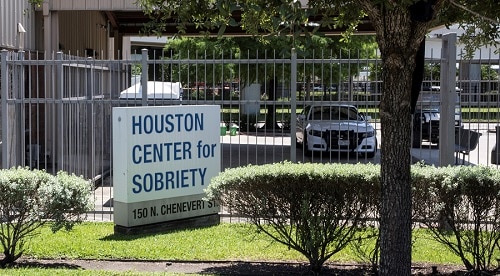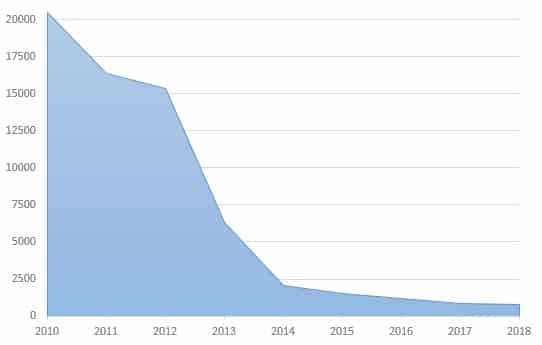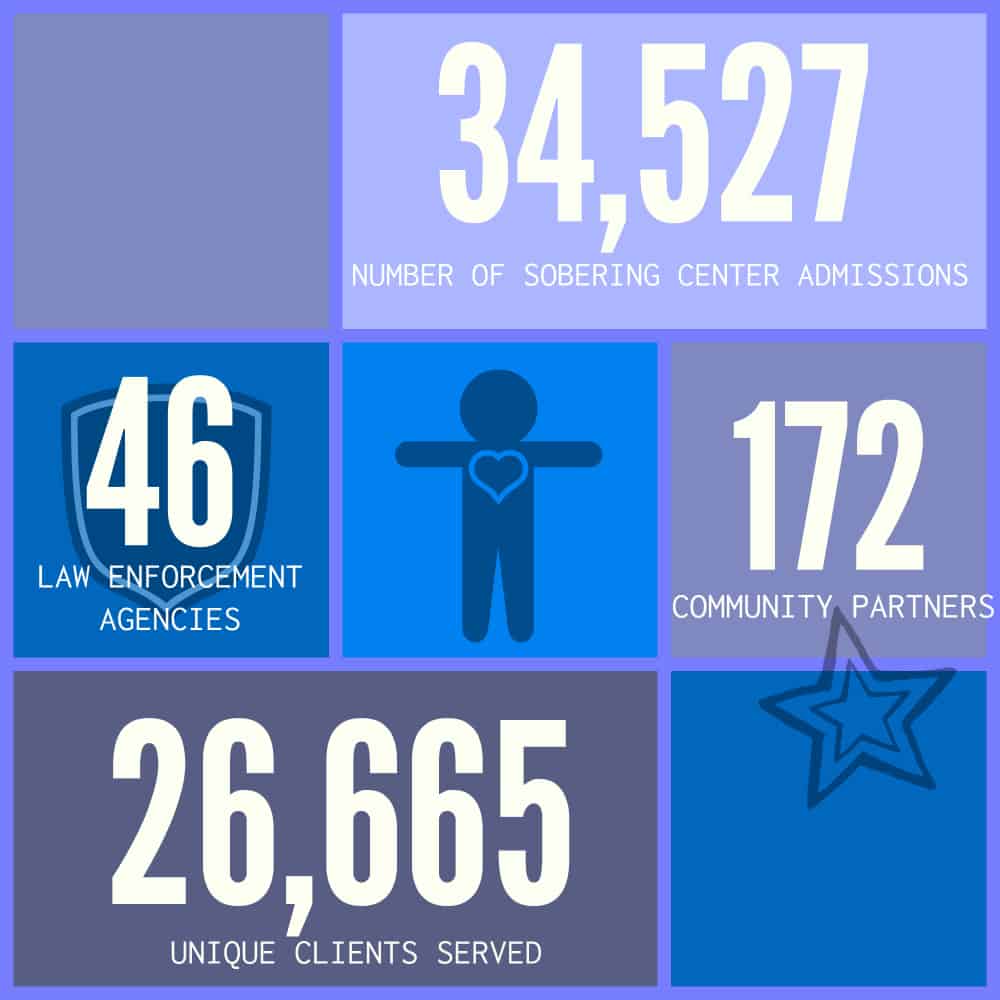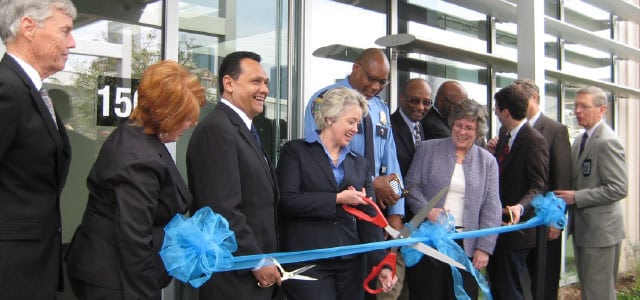Houston Recovery Center opened its doors April 13, 2013, at its ribbon cutting ceremony with Mayor Annise Parker. The nonprofit’s focus was helping the city reduce the number of public intoxicated people in jail by providing a safe place for these individuals to sober.
We’ve achieved that goal and so much more, serving more than 26,000 clients in that time. We’ve added new programs in the last year to address the continuing substance use issues that plague our city, especially regarding opioids. These include proactive programs like HEROES to reach users right after an opioid overdose and start a conversation about recovery.
What Are You Most Proud Of?

Executive Director Leonard Kincaid, who brought the idea of a sobering center to Houston after seeing a similar solution in San Antonio, said he is most proud that the city took a chance on an innovative concept like this – and dared to do something different. He is also pleased with what the agency has accomplished with this opportunity.
“We started with just the idea of diverting individuals from arrests for public intoxication but discovered along the way that this population has severe addiction and mental health challenges,” Kincaid states. “This was a population no one was extending a helping hand to.”
Major Mike Lee, former Houston Police Department lieutenant who co-founded Houston Recovery Center with Kincaid, said he knew the project made sense when naysayers said it wasn’t feasible or needed.
“I’ve always told myself and others, but for the grace of God there go I, that all the hard work and frustration of working on the HRC project would be worth it, even if it meant only changing one person’s life for the better,” Lee said. “We have seen that many lives are being changed every year as a result of the work of Houston Recovery Center.”

20,508 (2010) to 785 (2018)
Lee conducted the research and drafted the proposal for Houston Recovery Center, which has diverted nearly 95 percent of all public intoxication arrests away from the city jail since discussions began in 2010.
“During my 30-year law enforcement career, I have worked on numerous special projects,” Lee states. “Houston Recovery Center stands out as my proudest accomplishment.”
Board Chair Kay Austin, who spoke at the ribbon-cutting ceremony, said she was delighted as they began this initiative for the city that it was moving from a punitive model to a more humane approach, for those who may have had too much to drink.
“It’s an approach that involves intervention with the possibility of peer support for those who need and choose recovery,” Austin states. “So much of today’s media has a focus on addiction with very little said about the possibilities for a person in recovery.”

Employee Perspective
Four current employees started working at Houston Recovery Center on Day 1, in addition to Kincaid: Douglas Hinton, Tralanquelina Hinton, Susana Deltoro, and SeMarlon Williams. They are proud of the agency’s efforts in the last six years for a variety of reasons.
Douglas Hinton, Peer Support Specialist with street outreach and Project Reach, appreciates the opportunity the Center gave him six years ago to work with the population that they help daily. Most of all, he says, he’s proud of the people Houston Recovery Center has helped in their journey to recovery and wellness.
Susana Deltoro, Director of Client Services, shares how Houston Recovery Center has transformed from a sobering center to an agency able to assist clients in different capacities.

“Our recovery programs are designed with a strong person-centered foundation where clients get to choose their own goal,” she states. “The team (peer recovery specialist and clinicians) walks alongside clients’ recovery journey, demonstrating that long-term recovery is possible, and we are here to help. That is something to be proud of.”
